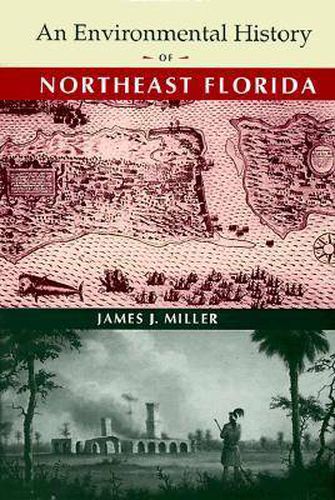Readings Newsletter
Become a Readings Member to make your shopping experience even easier.
Sign in or sign up for free!
You’re not far away from qualifying for FREE standard shipping within Australia
You’ve qualified for FREE standard shipping within Australia
The cart is loading…






This title is printed to order. This book may have been self-published. If so, we cannot guarantee the quality of the content. In the main most books will have gone through the editing process however some may not. We therefore suggest that you be aware of this before ordering this book. If in doubt check either the author or publisher’s details as we are unable to accept any returns unless they are faulty. Please contact us if you have any questions.
Early European descriptions of North America tell about a landscape and a variety of cultures in northeast Florida–a region that had been occupied by native people for more than 10,000 years–that were unlike anything the explorers and settlers had ever encountered. This story of the land and people in that region of the St. Johns River and the Atlantic coast covers 18,000 years–from the Ice Age to the first half of the 20th century. James Miller describes how natural features transformed and how cultural traditions of native people, as well as Spanish, English, and American colonists, developed in response to opportunities and constraints of the environment. With an unusually broad scope in time, space, and subject matter, he uses the example of northeast Florida to explore the notion of environmental equilibrium, to illustrate the fallacy of a pristine environment, and to show how essential environmental history is to modern ecological planning. Fully illustrated with 25 photographs and 40 maps and written in an accessible style that synthesizes material usually accessible only to specialists, the book will appeal to general readers and policy planners as well as experts. No comparable environmental history of any Florida region exists.
$9.00 standard shipping within Australia
FREE standard shipping within Australia for orders over $100.00
Express & International shipping calculated at checkout
This title is printed to order. This book may have been self-published. If so, we cannot guarantee the quality of the content. In the main most books will have gone through the editing process however some may not. We therefore suggest that you be aware of this before ordering this book. If in doubt check either the author or publisher’s details as we are unable to accept any returns unless they are faulty. Please contact us if you have any questions.
Early European descriptions of North America tell about a landscape and a variety of cultures in northeast Florida–a region that had been occupied by native people for more than 10,000 years–that were unlike anything the explorers and settlers had ever encountered. This story of the land and people in that region of the St. Johns River and the Atlantic coast covers 18,000 years–from the Ice Age to the first half of the 20th century. James Miller describes how natural features transformed and how cultural traditions of native people, as well as Spanish, English, and American colonists, developed in response to opportunities and constraints of the environment. With an unusually broad scope in time, space, and subject matter, he uses the example of northeast Florida to explore the notion of environmental equilibrium, to illustrate the fallacy of a pristine environment, and to show how essential environmental history is to modern ecological planning. Fully illustrated with 25 photographs and 40 maps and written in an accessible style that synthesizes material usually accessible only to specialists, the book will appeal to general readers and policy planners as well as experts. No comparable environmental history of any Florida region exists.